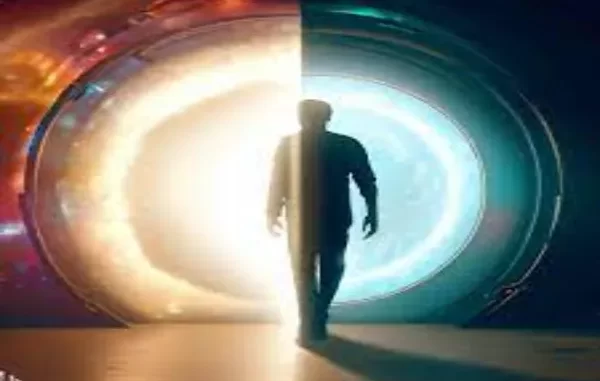
The Possibilities: Time Travel in Fiction and Film
Time travel is one of the most fascinating concepts in fiction and film. It is the exploration of the possibility of traveling through time, either to the past or to the future. It has been a common theme in literature and cinema for centuries, and continues to captivate audiences today.
Time travel stories often explore complex themes, from the ethical implications of changing history, to the consequences of the actions of time-travelers. While time travel stories can be serious, they can also be humorous, exploring the idea of what would happen if we could visit different times in history.
Time travel stories can take many different forms. They can be science fiction stories, in which time travel is accomplished through futuristic technology. They can also be fantasy stories, in which time travel is accomplished through magical means. They can also take the form of historical fiction, exploring what it would be like to travel to a specific moment in time.
No matter the form, time travel stories tend to explore the same themes: the nature of time, the consequences of changing the past, and the possibility of the future. They can also explore the idea of parallel universes, alternate timelines, and the concept of fate.
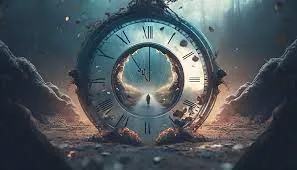
Time travel stories have been popular in film for decades, from classic comedies like “Back to the Future” to more recent science-fiction films like “Interstellar” and “The Terminator.” Time travel stories can also be found in television shows, such as “Doctor Who” and “Outlander.”
No matter the format, time travel stories offer an escape into a world of imagination and exploration. They allow us to consider the consequences of our actions and to ponder the possibilities of the future. They offer a unique form of entertainment, and an opportunity to explore the boundaries of time and space.
The Classics: Examining Iconic Time Travel Movies
Time travel is a timeless topic explored by filmmakers since the beginning of the motion picture industry. In addition to its exploration of the past, present, and future, time travel offers a unique spin on the classic story arc. Many time travel movies, such as Back to the Future, The Terminator, and Groundhog Day, have become iconic in their own right. Here, we will examine three of the most beloved time travel films and analyze the different ways in which they approach the concept of time travel.
The 1985 classic, Back to the Future, follows the adventures of Marty McFly (Michael J. Fox), a teenager who, with the help of a time-traveling DeLorean car, travels back in time to prevent his future parents from being separated. The movie is full of comedic moments, but also tackles themes of family, friendship, and responsibility.
The Terminator (1984) is a sci-fi action movie that tells the story of a cyborg assassin sent back in time to kill a young woman who will one day become the leader of a resistance movement. The movie is known for its thrilling action sequences and its strong female protagonist, Sarah Connor (Linda Hamilton).
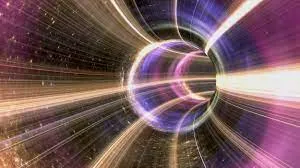
Groundhog Day (1993) is a romantic comedy in which a cynical weatherman (Bill Murray) is forced to relive the same day over and over again until he learns to appreciate the people and things in his life. The movie is considered a classic for its sharp wit and clever take on the idea of time travel.
Each of these movies provides a unique and entertaining take on the concept of time travel. Back to the Future is a light-hearted adventure that incorporates tropes from the sci-fi genre, while The Terminator is an action-packed thriller with a strong female lead. Groundhog Day is a comedy with a deeper message about the importance of living in the present. Ultimately, these movies demonstrate the limitless possibilities of time travel as a storytelling device.
A Survey of Time Travel Themes in Literature
Time travel has been a popular subject in literature for centuries, with authors creating stories that explore the idea of journeying through time. From Homer’s Odyssey to popular modern fiction like The Time Traveler’s Wife, time travel has been used as a storytelling device to explore complex themes and ideas.
One of the most common themes explored in time travel literature is the idea of alternate timelines and the consequences of changing the past. This theme has been explored in works such as H.G. Wells’ The Time Machine, where the protagonist travels to the future and discovers a broken world due to the consequences of humanity’s actions. Other authors, such as Ray Bradbury in his short story “A Sound of Thunder,” have explored the idea of alternate timelines, showing how even the smallest of changes in the past can have huge repercussions in the present.

Another popular theme in time travel literature is the idea of a character’s personal journey through time. This theme has been explored in works such as Audrey Niffenegger’s The Time Traveler’s Wife, where the protagonist must come to terms with his ability to time travel and the impact it has on his marriage and life. This theme is also explored in Madeleine L’Engle’s science fiction classic, A Wrinkle in Time, where a young girl must travel through time and space to save her father from a dark force.
Finally, time travel literature often explores the idea of parallel universes. In works such as Diana Gabaldon’s Outlander series, characters are able to travel to alternate versions of themselves in different timelines. This theme is also explored in Stephen King’s novel 11/22/63, where a man travels through time in order to prevent the assassination of President Kennedy.
Time travel literature has been used by authors for centuries to explore complex themes and ideas. From alternate timelines to personal journeys through time, authors have used the concept of time travel to create memorable stories that explore the human condition.
The Science of Time Travel: Examining the Science Behind Fictional Worlds
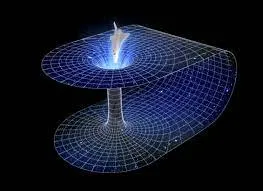
Time travel has captivated the minds of generations of scientists, writers, and dreamers alike. For centuries, people have been fascinated by the idea of stepping through time, from the mythical Ring of Gyges that allowed its wearer to go back in time to the classical novels of H.G. Wells and Jules Verne. Though time travel has been a common feature of science fiction for decades, the science behind it is a complex and often confusing subject. In this article, we will explore the theories of time travel and examine the science behind the fictional worlds of time travel.
The concept of time travel is based on the laws of physics, which determine how time works. According to the general theory of relativity, time is affected by the curvature of space-time, meaning that different regions of the universe can experience time at different rates. This means that if a person were to travel to a region where time was passing at a faster rate, they could effectively travel forward in time.
In addition to the laws of physics, the science of time travel also involves the concept of wormholes. Wormholes are hypothetical tunnels that connect two distant regions of the universe. If a person were to travel through a wormhole, they would theoretically be able to travel back and forth in time. However, this is an incredibly complex concept and scientists are still debating the feasibility of wormholes.
Finally, the science of time travel also involves the idea of parallel universes. Many scientists believe that there may be an infinite number of alternate universes that exist alongside our own. This means that if a person were to travel to a different universe, they could theoretically travel back in time. However, this is a highly speculative theory and has yet to be proven.
The science of time travel is a fascinating and complex topic. While the theories behind it are intriguing, it is likely that time travel will remain a fantastical concept for many years to come. Nevertheless, it is an exciting area of inquiry and one that continues to captivate the minds of scientists and dreamers alike.
The Cultural Impact of Time Travel: How Fiction and Film Shape Our Understanding of Time
Time travel is a fascinating concept that has been explored in fiction and film for generations. It has been used as a tool to explore a variety of themes and ideas, often related to the consequences of decisions made in the past and their potential effects on the future. As a result, time travel has become an integral part of the cultural landscape, providing a platform for conversation about the power of the choices we make and their potential implications.
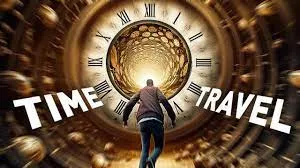
Time travel has been used to examine a wide array of topics, from the impact of technology on society to the human cost of war. It has allowed for an exploration of the idea of fate versus free will, and the implications of our decisions. In the film Back to the Future, for example, the main character Marty McFly learns that his actions in the past have created a ripple effect in the present. This serves as a cautionary tale, warning viewers of the potential consequences of their actions and reminding them to think carefully about the choices they make.
Time travel has also been used to explore the idea of nostalgia. Films such as Hot Tub Time Machine and The Butterfly Effect show how revisiting the past can bring a sense of comfort, but also how it can be a source of regret. The main characters of these films come to understand the importance of living in the present and making the most of their current lives.
The cultural impact of time travel is far-reaching. It has brought attention to the importance of decision-making and the power of hindsight. It has also highlighted the idea that we can’t change the past, but that we can learn from it and use it to create a better future. Time travel has become a powerful tool for exploring our shared history, ideals, and values, and has helped to shape our understanding of the world around us.

Leave a Reply